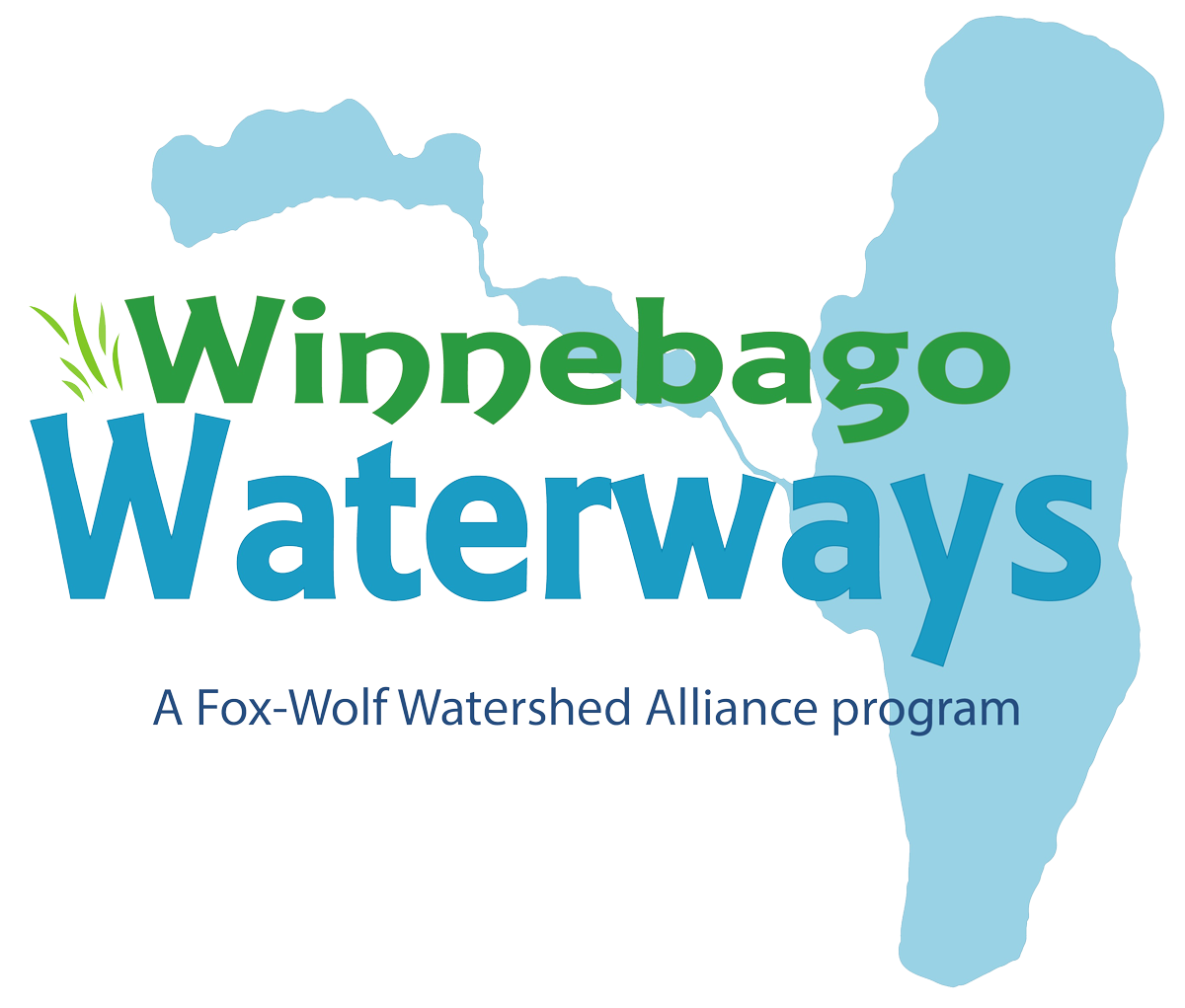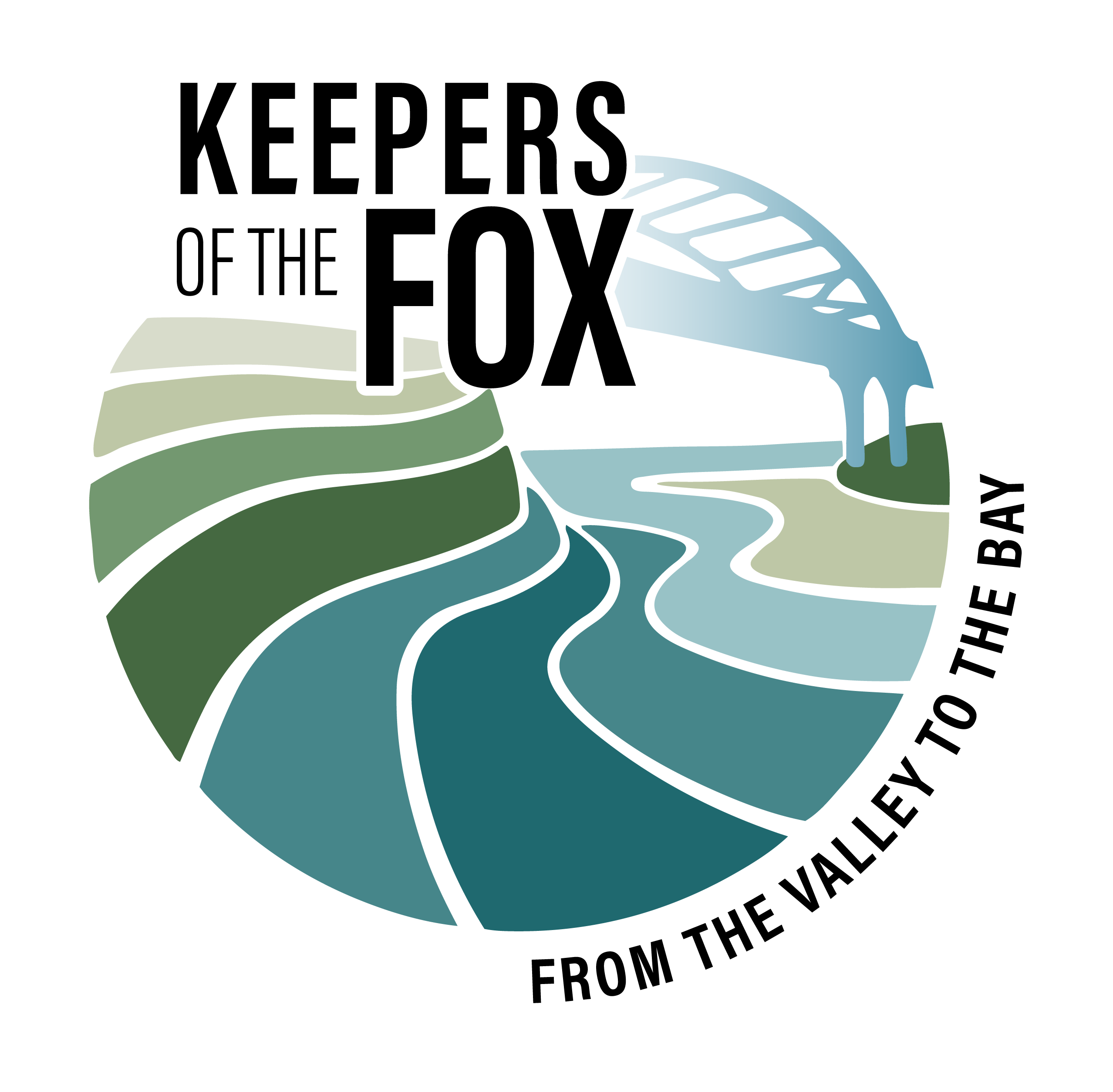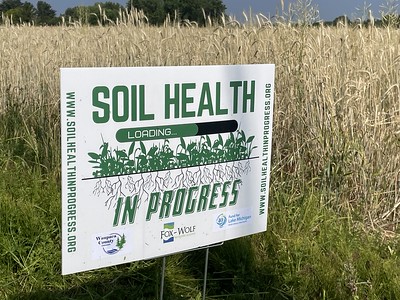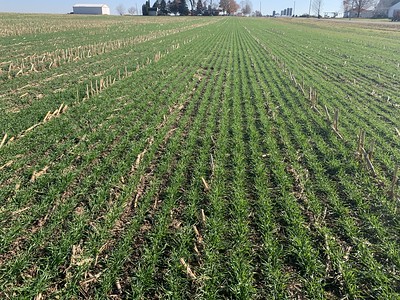Sowing Success: Fox Farmers Wraps Up
As we come to the conclusion of the Fox Farmer Conservation Champions grant, the outcomes of this initiative to promote sustainable farming practices are becoming increasingly evident. The collaboration between Fox-Wolf Watershed Alliance, Outagamie County Land and Water Conservation Department (LWCD), and local producers have not only yielded successful results but have also fostered trust and a shared commitment to the journey toward enhanced soil health.
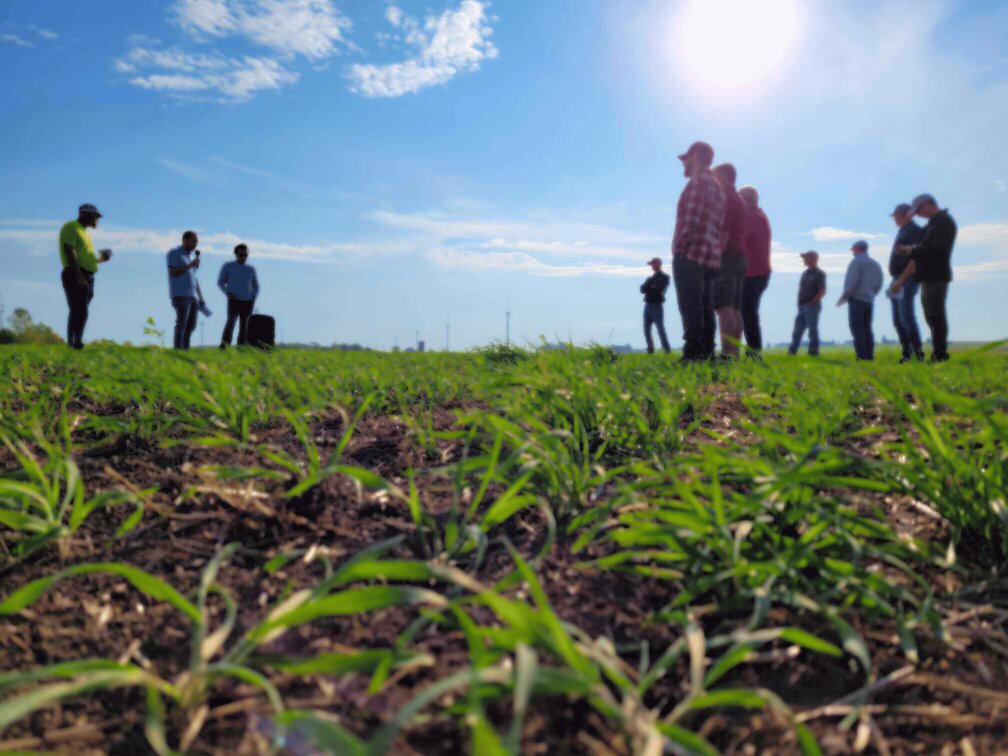
Despite the conclusion of the grant this winter, the enthusiasm among local farms remains palpable. The prospect of experimenting with new ideas and implementing previously successful strategies underscores the enduring commitment of producers to soil health practices. And producers beyond those enrolled in the grant project are on board. Due not in a small part to the influence of the project’s farmers, many surrounding farms are installing cover crops with and without cost-share payments. The commitment the participating farms have to soil health practices has been one of the project’s most noted successes. This commitment is shown by both expanding soil health practices on acres outside those under contract and continuing practices on acres that no longer receive cost share from this grant or others. Soil health practices are beyond the minimum requirement of cover crops and no-til and are being incorporated as part of each farm’s operation. At first, the different practices seemed challenging or an extra step, for example buying seed or finding someone to drill in cover crop directly after harvest. With each year, the farms were able to better manage these challenges or “extra steps.” Now planting cover crop, for example, is almost fully incorporated into their mindsets.
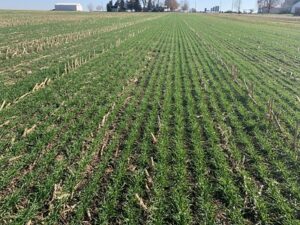
A triumph of this initiative lies not only in tangible outcomes such as acres implemented but in the relationships and trust woven between farms and project staff. The willingness of producers to confront challenges head-on, coupled with their commitment to learning and adaptation
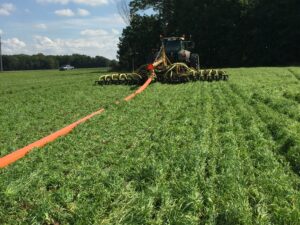
paints a vivid picture of the great work our these and other local farmers are undertaking. Thanks to funding and investments in planning resources, producers are empowered to navigate obstacles, forging a resilient path rather than abandoning sustainable practices. The harmony between producers and project staff reflects a shared dedication to the soil health journey.
As we wrap up this Great Lakes Restoration Initiative project that started back in 2019, the success stories and lessons learned from this collaborative venture resonate as a model to replicate in other grant projects. The commitment to innovation and adaptability by the producers and the strong relationships established between producers and project staff have demonstrated the need for conservation staff to support producers in adopting soil health practices. With each growing season, agricultural conservation work across the basin shows that by sowing the seeds of collaboration and sustainability, the harvest reaped is one of resilience, prosperity, and environmental stewardship.
These efforts are possible through a GLRI grant focused on:
- Continuing to build on conservation momentum in the Plum and Kankapot subwatersheds by providing support to producers by Outagamie County Land Conservation Department staff
- Working with Conservation Champions to overcome the hurdles of consistent implementation of cover crops, no-till, and low disturbance manure injection and
- Tracking successes and challenges and communicating best practices to other local producers
Questions? Want to learn more? Contact the Lower Fox River Watershed Program Director, Katie Woodrow, at katie@fwwa.org
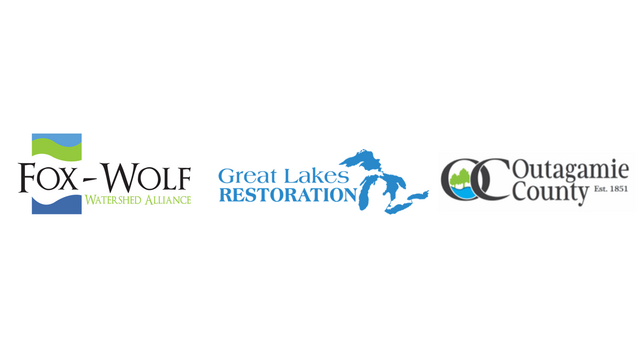
Questions? Contact us:
Basin Agriculture Coordinator: Justin Loehrke, 920.841-6938 or justin@fwwwa.org
Climate Smart Agriculture Project Manager: Katie Woodrow, 920.915.5767 or katie@fwwa.org
To receive periodic updates on these projects as well as many others, please subscribe to our newsletters: CLICK HERE
The post Sowing Success: Fox Farmers Wraps Up appeared first on Fox-Wolf Watershed Alliance.
Fox-Wolf Watershed Alliance
https://fwwa.org/2023/12/19/fox-farmers-wraps-up/?utm_source=rss&utm_medium=rss&utm_campaign=fox-farmers-wraps-up

